Man travels 2,000 miles from Wales to find family buried in Turkey earthquake rubble
Ahmat Yilmaz journeyed through the night from south Wales to the mountaintop village of Tut
A man who travelled more than 2,000 miles to reach his childhood home in disaster-struck Turkey arrived to find his family still buried under the rubble.
Ahmat Yilmaz journeyed through the night from south Wales to the mountaintop village of Tut, in Turkey’s Adiyaman province, after hearing his brother Ali had died in a deadly earthquake.
When he arrived, he found his brother’s wife was also seriously injured and his two nieces were still buried among the rubble.
Thousands died in the initial earthquake, a second major tremor and dozens of aftershocks that rocked Turkey and Syria on Monday – leaving countless families mourning the loss of loved ones.
A team of British broadcasters met Mr Yilmaz, desperately searching for a way to reach his family, at one of the few functioning airports in the area.
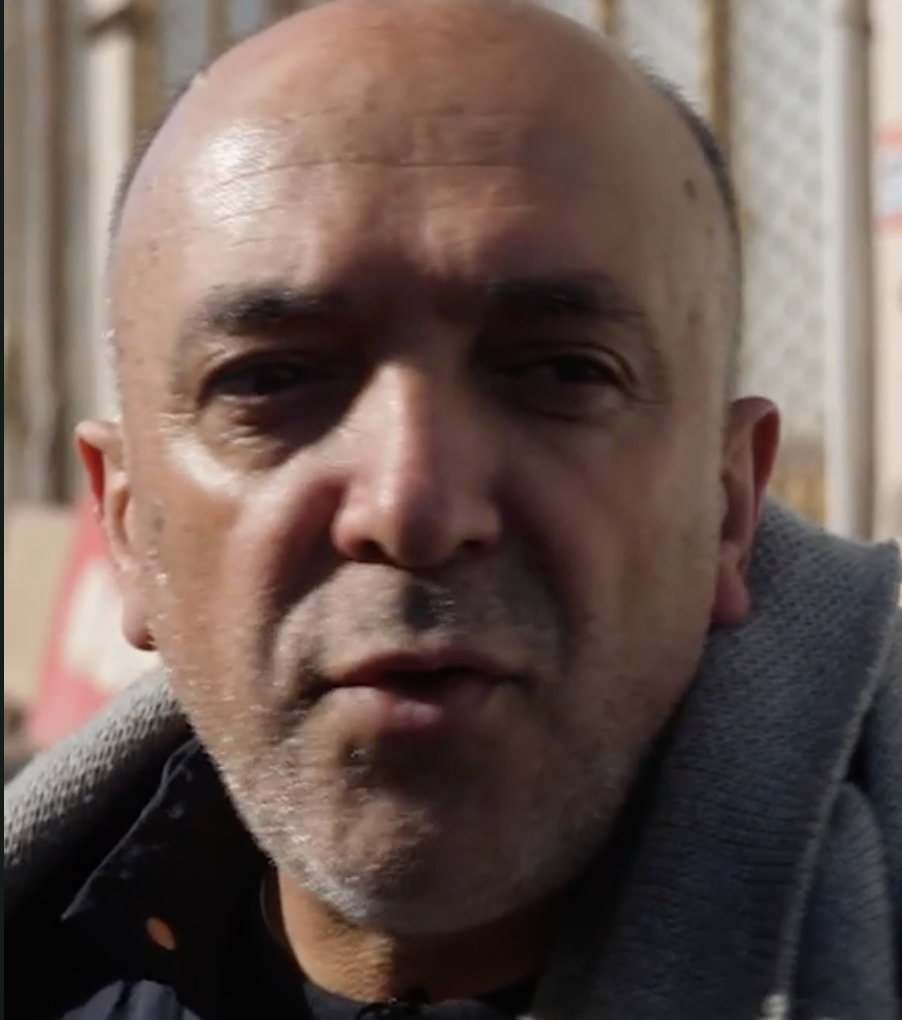
The Sky News team offered to drive him up the treacherous, boulder-strewn mountain road that led to Tut — a remote, snow-capped village where he grew up.
Halfway through their journey, Mr Yilaz received a phone call from his surviving niece to say that no one was coming to help the family. Overcome with grief, he begins to sob.
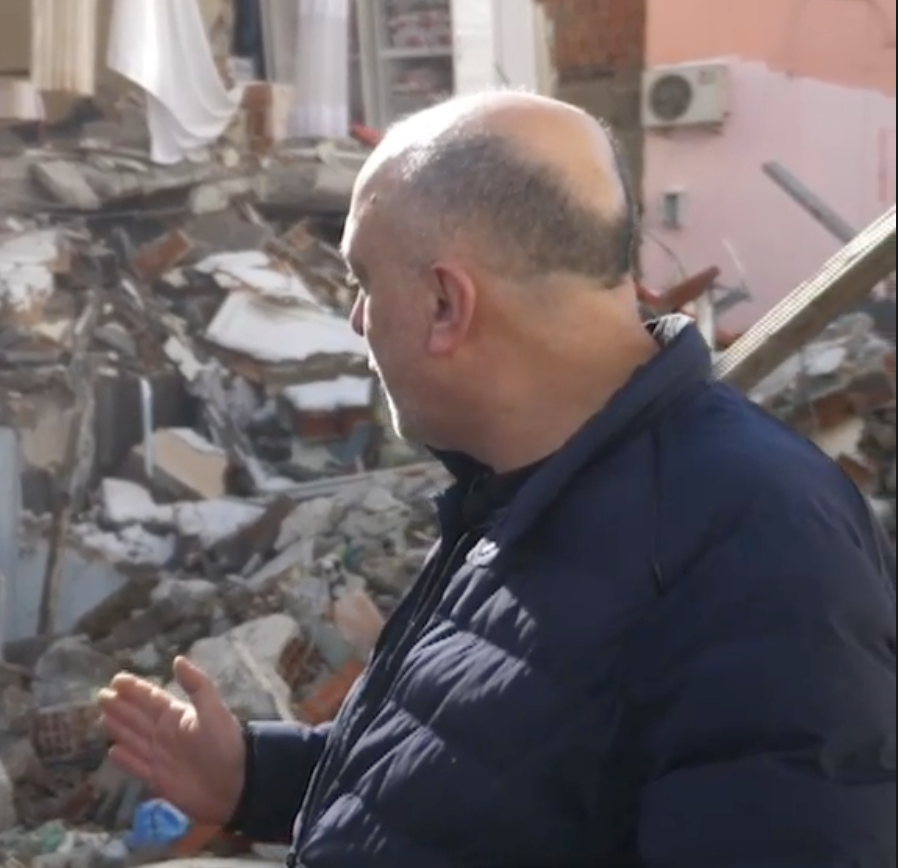
On arrival in the village, Mr Yilmaz stares out in shock at his white-fronted childhood home – the floors of which had concertinaed to the ground in the 7.8 magnitude quake.
He described the house, now reduced to rubble, as one “full of joy and love.”
He tells Sky News: “It’s unbelievable. I’ve never seen this before. I’m really shocked. I’ve never seen this happen before in my life ... never.”
A second clip shows him greeting his sister Fara and surviving niece Sidka. The family embrace and exchange despairing wails.
It comes as rescuers have warned that “time is running out” for survivors still trapped under the rubble of buildings flattened by the earthquakes which hit Turkey and Syria.
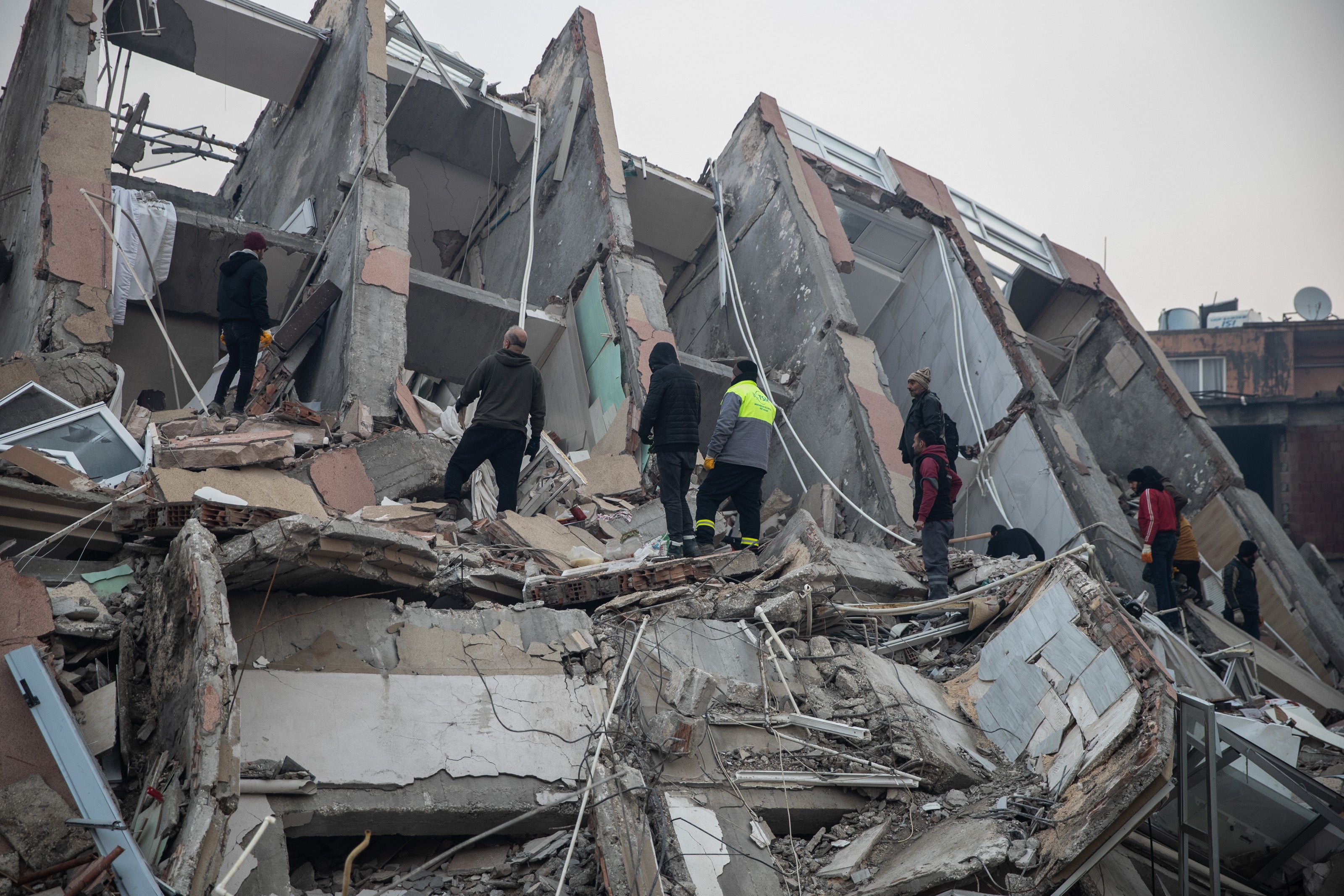
More than 9,400 people have been reported dead in the two countries, with some 30,000 injured, according to authorities – making it the world’s deadliest seismic event since the 2011 tsunami which killed nearly 20,000 people.
Overwhelmed emergency workers continue to work through close-to-freezing temperatures, unrelenting rainfall, and power outages.
The 7.8 magnitude earthquake was the deadliest to hit Turkey since 1999, and officials fear the death toll will keep rising.
The epicentre of the first earthquake was the Pazarcik district of Kahramanmaras, which lies in southeast Turkey.
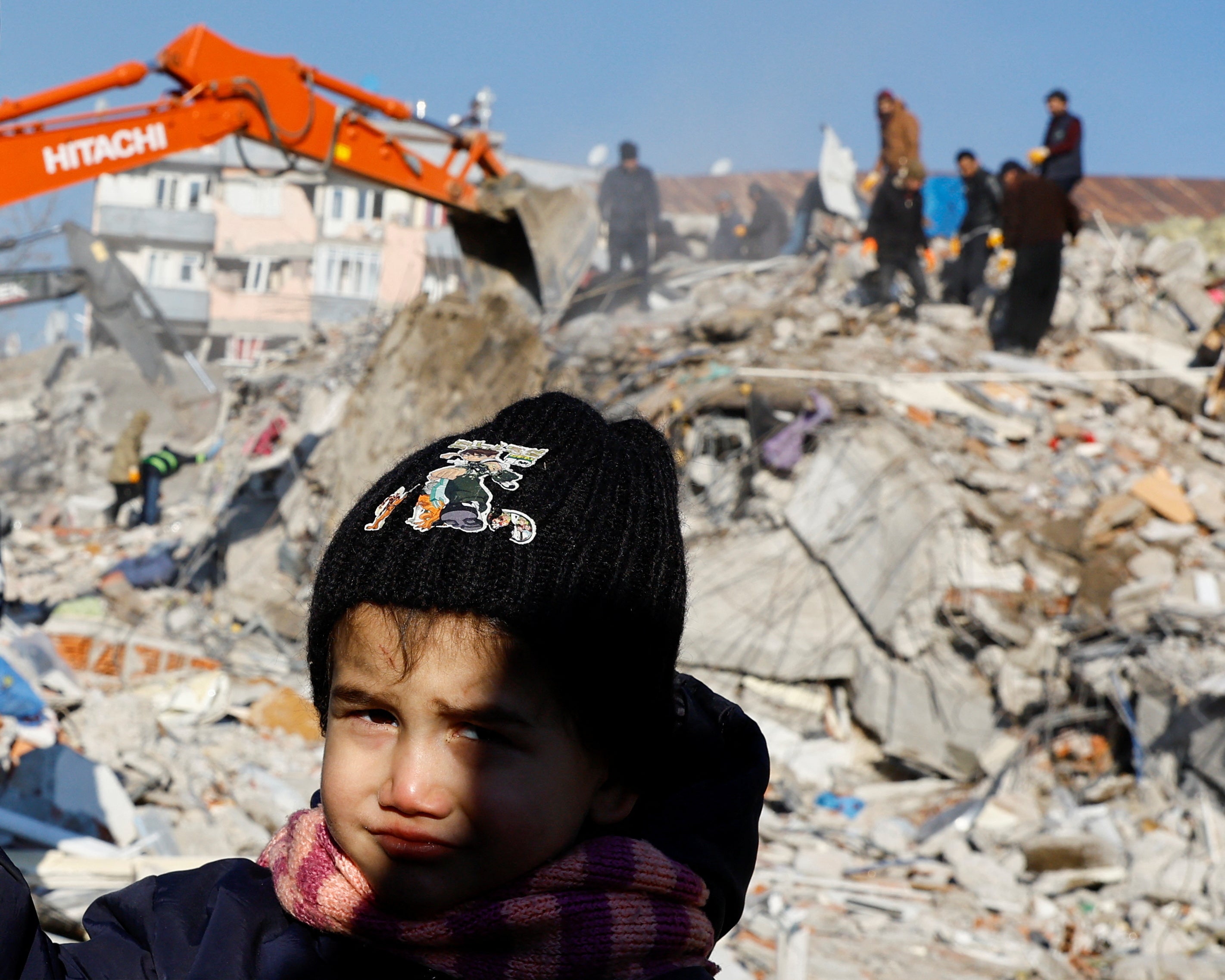
Turkish authorities say some 13.5 million people were affected in an area spanning roughly 450km from Adana in the west to Diyarbakir in the east, and 300km from Malatya in the north to Hatay in the south.
Join our commenting forum
Join thought-provoking conversations, follow other Independent readers and see their replies
Comments
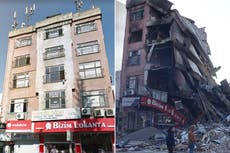

Bookmark popover
Removed from bookmarks